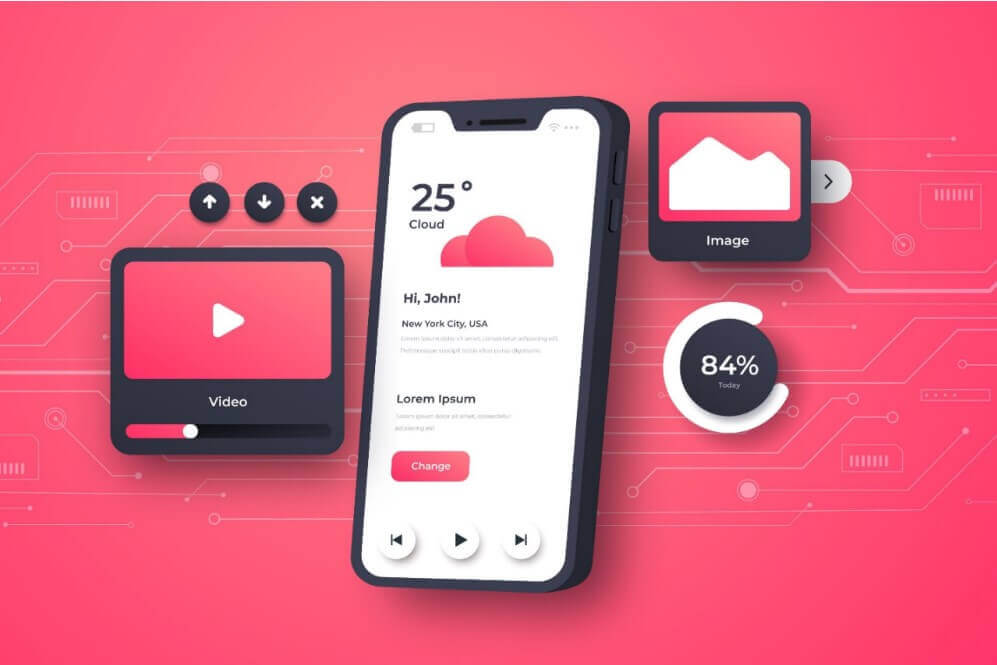The ADVN Blog - Where we inspire business
Where you learn TechNews
News & Insights
Articles and updates on mobile, web, enterprise software, and e‑commerce.
The Importance of Mobile-First Design in App Development
Jan 24th, 2023

In today's digital era, mobile devices have become an integral part of our lives, transforming the way we interact, communicate, and access information.
Businesses that prioritize mobile app development understand the significance of mobile-first design. In this blog post, we will explore the importance of mobile-first design in app development and how it contributes to the success of businesses online. By adopting mobile-first design principles, businesses can enhance user engagement, boost conversions, and gain a competitive edge in the ever-expanding mobile app market. Let's dive into the details.
Simplifying User Experience Across Devices
With the growing number of mobile users, it's crucial for businesses to provide a seamless user experience across different devices. Mobile-first design ensures that the app is designed and developed with mobile users as the primary focus. By starting with mobile, businesses can prioritize key elements, streamline navigation, and optimize the user interface for smaller screens. This approach creates a user-friendly experience that translates well to larger devices, such as tablets and desktops.
Improving Website Performance and Loading Speeds:
Mobile-first design plays a crucial role in optimizing website performance. By focusing on mobile devices, businesses can reduce unnecessary elements, optimize images and media, and implement responsive design techniques. These optimizations lead to faster loading speeds, which are essential for keeping users engaged and preventing them from bouncing off the site. Mobile users, in particular, have little patience for slow-loading websites, so optimizing performance is key to retaining their interest.

Enhancing SEO and Search Rankings
Mobile-first design has become increasingly important for search engine optimization (SEO). Search engines like Google now prioritize mobile-friendly websites in their rankings. By designing with mobile-first principles, businesses can ensure that their websites are optimized for mobile devices, providing a positive user experience, and increasing their chances of ranking higher in search results. Improved search rankings lead to increased visibility and organic traffic to the website.
Creating Intuitive User Interfaces
Mobile-first design encourages businesses to simplify the user interface (UI) and focus on delivering intuitive interactions. With limited screen space on mobile devices, it's essential to prioritize the most important features and actions. By following mobile-first design principles, businesses can create intuitive and user-friendly interfaces that guide users seamlessly through the app. This approach reduces friction, enhances usability, and improves overall user satisfaction.

Adapting to Changing User Behavior and Expectations
Mobile-first design aligns with the changing user behavior and expectations of today's digital consumers. People are increasingly reliant on their mobile devices for various tasks, such as browsing, shopping, and accessing services. By designing apps with a mobile-first approach, businesses can meet users' expectations and provide a consistent experience across devices. This adaptability fosters user loyalty and encourages repeat engagement with the app.
Conclusion
In the mobile-dominated landscape, businesses cannot afford to overlook the importance of mobile-first design in app development. By prioritizing the mobile user experience, optimizing website performance, enhancing SEO, creating intuitive interfaces, and adapting to changing user behavior, businesses can position themselves for success in the competitive app market. Mobile-first design is not just a trend; it is a necessity for businesses aiming to connect with their audience, drive engagement, and achieve their business goals. Embrace mobile-first design and reap the benefits of a user-centric and future-proof app that sets your business apart from the competition.Related Blog Posts
Best Practices for Optimizing Mobile App Performance
May 29th, 2023
The Evolution of Programming Languages
May 20th, 2023





